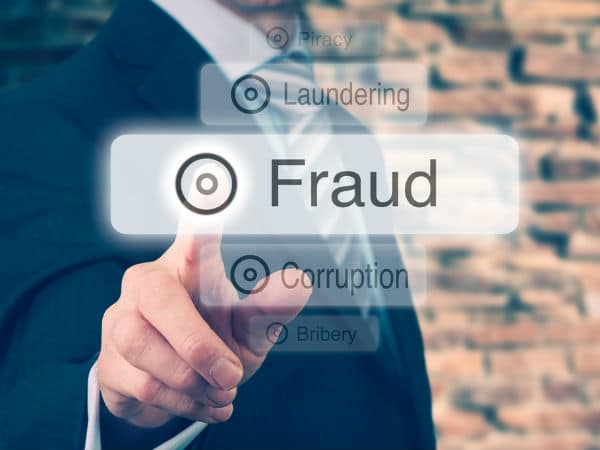Internet Scams: An Outline + Internet Scams To Stay Away 2023
Internet scams refer to fraudulent activities that are conducted using the internet or other digital communication technologies. These scams are designed to deceive individuals, organizations, or businesses into giving away money, personal information, or sensitive data to the scammers.
Of course, the making of the internet has made for a fabulous means to investigate new points, remain associated with friends and family, and, surprisingly, put our number one items and administrations readily available. Be that as it may, it accompanies a few expected risks — online scams. Also, they’ve expanded almost 70% lately.
Considering that, now is the right time to find out about the top scams circumnavigating the internet, how they work, and internet scam cautioning signs and best practices to remain safe on the web.
What Are Online Scams?
Online scams, otherwise called web scams, proceed to advance and can fluctuate generally. The term for the most part alludes to somebody utilizing internet providers or programming to defraud or exploit casualties, normally for monetary profit.
Cybercriminals might contact likely casualties through private or work email accounts, informal communication locales, dating applications, or different strategies in endeavors to acquire monetary or other important individual data.
Numerous fruitful scams on the web have comparable endings: The casualty loses their own cash or neglects to get reserves the cybercriminal guaranteed. In most pessimistic scenario situations, the casualty could try and lose their character.
20 Kinds Of Web-Based Scams
Scammers have concocted many ways of beguiling casualties through the web. The following are 20 of the most widely recognized sorts of scams on the web.
1. Phishing Scams
Cybercriminals have had the option to trap many individuals with their phishing assaults as of late, costing phishing casualties more than $54 million of every 2020. Fortunately, you don’t need to be one assuming you know how this type of web based scamming works and how to safeguard yourself:
- The cybercriminal sends you an email giving off an impression of being from a genuine source, for example, a bank, long range informal communication webpage, or online store.
- You get fooled into tapping on a vindictive download or a scammer site interface.
- The cybercriminal introduces malware or potentially utilizes your taken accreditations to take your delicate information.
Online scam cautioning signs:
- Pressing tones
- Incorrect spellings and unfortunate syntax
- Requests with dangers of monetary outcomes
- Logos that don’t exactly look right
Online scam counteraction tip: Go straightforwardly to the organization’s true site Assuming you’re uncertain regardless of whether an email is genuine.
2. Ransomware
A cybercriminal may taint your PC with malware called ransomware, if, for instance, they are fruitful with phishing scams. Once introduced, the cyberthief could scramble your documents and request a payoff installment, commonly in a digital currency like Bitcoin. What’s more, with ransomware misfortunes expected to reach $265 billion by 2031, it can help you to know how to safeguard yourself.
Online scam cautioning signs: Connections or potentially documents remembered for dubious messages.
Online scam counteraction tip: Consistently reinforcement your information and download antivirus programming to alarm you of likely diseases.
3. Scareware
Scareware can arrive two or three structures, yet conceivably the most well-known of this web scam is phony antivirus programming. How it functions: A spring up cautions you of an infection that tainted your gadget. It then offers to fix the disease with “free antivirus” programming. This product is for sure phony and used to introduce malware that can take your delicate data.
Online scam cautioning signs:
- The product promptly examines your PC for infections.
- The spring up is difficult to close.
- The spring up believes that you should act rapidly.
- You’ve never known about the product organization.
Online scam anticipation tip: Don’t tap on surprising malware notices.
4. Travel Scams
Online scammers even have had the option to use our chronic hunger for new experiences to con individuals out of more than $175 million out of 2020 as online travel scams. This is the way they normally work:
- The web scammer sends an email claiming to be a movement protection specialist.
- Their very much planned yet counterfeit email persuades you to buy travel protection for an outing you as of late reserved.
- They record and your own banking information.misuse
This internet based scam can likewise be sold via online entertainment. In this situation, online scammers post appealing get-away photographs with pernicious connections implanted. When you click, you’re coordinated to a pernicious site illuminating you regarding a free excursion you won. They’ll continue to attempt to inspire you to enter individual data to guarantee your award and, thus, take your data.
Online scam warning signs:
- Travel agents offering 100% insurance coverage, no matter what kind of event
- Social media posts directing you to unsecure sites
- They can only accept payment via wire transfer
Online scam prevention tip: Only purchase travel insurance from reputable agencies.
5. Counterfeit Shopping Sites
Cyberthieves may likewise make and distribute counterfeit shopping sites that either look authentic or duplicate existing retailer sites. They commonly highlight bargains that are unrealistic, tracking down famous brands of dress and costly hardware at extra-low costs. Programmers utilize these arrangements to fool you into purchasing their phony merchandise and record your financial data at the hour of procurement to use for themselves.
Programmers additionally use formjacking to target online customers. They’ll endeavor to hack a genuine retail organization’s site and divert customers to a phony installment page. They might utilize the phony structures made to take your Mastercard and individual data.
Online scam cautioning signs:
- A divert carrying you to a page with “http://” in the URL
- Costs that are unrealistic
Online scam anticipation tip: Download trusted antivirus programming to caution you of possibly unstable sites.
6. Grandparent Scams
Old individuals are more defenseless with regards to the web. What’s more, online scammers realize this quite well, involving their mindful and cherishing nature against them in grandparent scams.
This web scam works by cultivating an earnest message or email to a grandparent professing to be a grandkid needing monetary assistance. They might say they’re abroad and need cash briefly train ticket or help to cover a startling medical clinic bill.
Online scam cautioning signs:
- An instant message or email from an unsaved number
- A solicitation for an outlandish measure of cash from a friend or family member
Online scam anticipation tip: Try not to act right away and give your all to confirm your grandkid’s character, posing explicit inquiries just they would be aware.
7. Romance Scams
Web dating can be an extraordinary method for meeting likely significant others, however cyberthieves can likewise utilize web based dating stages to attempt to defraud clueless casualties. For viewpoint, in 2020, there were in excess of 35,000 casualties of sentiment scams alone. This is the way the web-based scam works.
- The fraudster ordinarily focuses on their casualty on an internet dating website, and they start a web-based relationship.
- The cybercriminal gains the casualty’s trust however consistently concocts motivations behind why they can’t get together face to face.
- The cyberthief requests cash or insights regarding the casualty’s monetary life
On the off chance that not spotted, sentiment scams might actually bring about you having your own data as well as cash taken by somebody you thought cherished you. Yet, stress not on the grounds that there are advance notice signs to assist you with remaining careful.
Online scam warning signs:
- Their profile appears to be unrealistic
- They live out of state
- The relationship moves quick
- They request cash and additionally private data
Online scam counteraction tip: In the event that you start a web-based relationship with somebody, safeguard yourself by posing a ton of inquiries, taking it gradually, and never giving out private data.
8. Assassin Scams
In one more sort of web scam, a cybercriminal may send you a message taking steps to humiliate or harm you or a relative except if you pay a payment. These are known as contract killer scams.
The scammer might have accumulated insights concerning your life from online entertainment profiles, which could cause the case to appear to be more genuine or earnest.
On the off chance that you get one of these messages, report it to the FBI’s Web Wrongdoing Objection Center and your nearby policing.
Online scam warning signs:
- You get a message from somebody guaranteeing they’ll cause hurt for you
- The cybercriminal says they will save you on the off chance that you pay a specific measure of cash
Online scam avoidance tip: Never answer to spam texts from obscure numbers or messages from obscure addresses.
9. Lottery Scams
The lottery scam could be considered a subcategory of phishing scams. How it functions: An email might guarantee you’ve won an enormous lump of money, a free outing to a colorful objective, or another phenomenal award.
The message will express that to guarantee your outing or rewards you just have to pay a couple of little charges. After you pay those expenses, you at no point ever hear from the association in the future.
Online scam warning signs:
- You win an award for something you didn’t enter
- Prizes that appear to be unrealistic
- You’re expected to make an installment to acknowledge your award
Online scam avoidance tip: Never click on unforeseen pop-ups or connects from unrealistic messages.
10. Technical Support Scams
Fraudsters go through critical pop messages or phony web-based advertisements to advance ill-conceived programming administrations and complete technical support scams. These internet scams might say you definitely disapprove of your PC and proposition technical support administrations you don’t have to determine the issues (on the grounds that the issue doesn’t exist). When they have you snared, they could attempt to introduce malware onto your gadgets with the phony programming they’re advertising.
Online scam warning signs:
- Surprising spring up messages
- The “technical support” requests installment through cash move
Online scam counteraction tip: Download trusted antivirus programming from a legitimate organization to safeguard your gadgets.
11. Disaster Relief Scams
At the point when incident strikes — like a catastrophic event — you’d anticipate that others should be only thoughtful. In any case, there are programmers who find open doors in dim times and complete fiasco alleviation scams to attempt to place some additional cash in their pockets.
These web-based scams work by sending counterfeit messages acting like real foundations or government associations. They’ll then attempt to persuade you to make gifts to assist with supporting those out of luck. The cybercriminal may utilize the Visa and individual data you give to make fraudulent buys, possibly jeopardizing your credit.
Online scam warning signs:
- An administration office or good cause email not matching that of their authority website
- Websites with practically zero contact data
Online scam prevention tip: Never answer messages with dubious source addresses.
12. Coronavirus Online Scams
While some were overcoming Coronavirus lockdowns and measured isolations by idealizing their sourdough starters and Do-It-Yourself home tasks, a few programmers were consummating their Coronavirus online scams. Furthermore, they saw some achievement, scamming almost 20,000 individuals starting from the start of the pandemic.
These internet scams take many structures, however here are the absolute generally normal viewed as on the web:
- Health organization impersonation: Cybercriminals act like individuals from wellbeing associations, like the U.S. Places for Infectious prevention (CDC) or World Wellbeing Association (WHO) to acquire individual data.
- Websites selling fake personal protective equipment: Programmers utilize social designing to make scamming websites that proposition wipes, hand sanitizer, and famous things during the pandemic. These things might in all likelihood won’t ever show up.
- Fake government updates and payments: Cyberthieves attempt to convince you into tolerating Coronavirus help installments or pursue refreshes by giving individual data.
- Fake donation requests: Online scammers endeavor to inspire you to give to a foundation they guarantee helps those generally impacted by the pandemic.
Online scam warning signs:
- An administration organization or noble cause email not matching that of their authority website
- Websites with practically no contact data
- Cash demands through wire move
Online scam anticipation tip: Contact your state or neighborhood legislatures in regards to data about Coronavirus or the pandemic to forestall them later on.
13. The Nigerian Letter Scam
The Nigerian letter scam, otherwise called 419 fraud or the development expense scam, is perhaps of the longest-running web-based scam. How it functions: You get a profound message from somebody professing to be an authority government representative, finance manager, or individual from a plentifully well off unfamiliar family, requesting that you assist them with recovering an enormous amount of cash from an abroad bank.
In return, the individual vows to give you a portion of the cash. They might try and create counterfeit administrative work that makes the arrangement look real.
Online scam warning signs:
- A letter or email from a far off country guaranteeing an association with you
- A solicitation for individual or banking data
Online scam avoidance tip: Never answer dubious messages or instant messages, particularly from obscure shippers.
14. Cash Transfer Scams
Cash move, or phony check, scams surprise individuals during a period of fervor. It can happen when somebody thinks they’ve effectively sold one of their assets on the web. The buyer might send more cash than initially settled upon through clerk’s check, individual check, or wire move.
When you accept their cash, they might attempt to fool you into wiring them the distinction of the first sum you both consented to pay, taking your own data when you attempt to do the decent thing of sending their cash back.
Online scam cautioning signs:
- The buyer demands cash by means of wire move
- Offers that expect you to pay to accept your income
Online scam anticipation tip: Only send money to verified accounts on encrypted payment services.
15. Pre-Supported Notice Scams
Pre-supported notice scams send you a phishing email notice about another charge card or individual credit that a bank pre-endorsed you for. Individuals needing speedy money frequently succumb to this internet based scam as a result of the quick endorsement and alluring credit limits. When they have you persuaded, they might request a forthright installment to finish your application, which doesn’t really exist.
Online scam cautioning signs:
- Forthright installments to present your application
- Cash demands by means of wire move, cash, as well as gift vouchers
Online scam prevention tip: Visit your bank’s true website to investigate or check Mastercard or individual advance choices.
16. Digital Currency Scams
Online scammers have even tracked down an approach to focusing on the present crypto-inquisitive people, taking more than $80 million from casualties in 2021. Cryptographic money scams come in many structures, like phony giveaways, pantomimes, and coercion. Be that as it may, they all have a definitive objective of getting tightly to individual data expected to get to your computerized wallet and take any finances put away in your record.
Online scam warning signs:
- Cryptographic money speculations with “ensured” significant yields
- Unlicensed or unregistered cryptographic money venders
Online scam prevention tip: Exploration cryptographic money trades prior to financial planning and never answer pressing solicitations for installments.
17. Social Media Scams
Virtual entertainment scams represented almost $770 million in taken subsidizes last year, which put them serenely on the present rundown of. They work by showing different posts, for example, optimistic holiday destinations and limited extravagance items, on your newsfeeds — all determined to inspire you to tap on a connection that might actually be facilitating malware.
Online scam warning signs:
- Posts offering very low costs on famous merchandise
- Posts with joins guiding you to another page and advising you to guarantee an award
Online scam prevention tip: Consistently check organization data prior to making a buy with a web-based dealer.
18. Social Media Impersonation
Web-based entertainment pantomime could be considered a subcategory of online entertainment scams. The objective is frequently to take your internet based characters. How this web-based scam functions:
- A cybercriminal duplicates the name, profile picture, and essential data from somebody’s genuine record to make a copycat account.
- They send companion solicitations to the first record’s companion list trying to get to their own data, including messages, addresses, birth dates, and that’s just the beginning.
- They utilize the taken data for individual addition.
Online scam warning signs:
- As of now friended profiles inquiring as to why you’re mentioning to follow them once more
Online scam prevention tip: Put limitations on who has consent to see your profile data.
19. Mobile Scams
Influencing just about 60 million individuals in 2021, versatile scams can come in many structures, however the most widely recognized are phishing applications. Cybercriminals make counterfeit applications intended to seem to be the genuine article, very much like phishing messages. It is the very same reason; notwithstanding, rather than utilizing messages, the programmer conveys malware through a phony application.
Online scam warning signs:
- An application is hard to close
- An application vanishes and returns on your home screen
- Applications containing advertisements that divert you to dubious destinations
Online scam prevention tip: Just download trustworthy applications from your application store.
20. Proposition For Employment Scams
This internet scam could find its direction to you as a call, LinkedIn message, or spontaneous email that promotes a task expecting next to zero genuine work yet offering loads of fast money.
Lawbreakers who practice this internet based scam frequently target individuals searching for a new position or needing to telecommute. Notwithstanding, when you secure the work, you’re approached to finish up routine desk work that expects you to give your Federal retirement aide number, address, and bank data. Nonetheless, the gig and partner administrative work are phony, and the fraudsters can utilize this individual data to get to your monetary records.
Online scam warning signs:
- A proposition for employment’s compensation is unrealistic
- Ineffectively composed sets of expectations
- Absence of organization data or dubious organization website
Online scam prevention tip: Just apply to situate posted on respectable places of work.
How Would I Shield Myself From Online Scams?
Understanding how online scams work is the most vital phase in figuring out how to keep away from online scams while perusing. In any case, these web-based scam avoidance tips could assist you with promoting.
Set up multi-factor authentication
A few internet based accounts offer an additional layer of safety known as multifaceted confirmation, likewise called two-factor verification. This requires at least two certifications when you sign in to a record. This could be a mix of a secret key and a one of a kind code shipped off your telephone or email. It could likewise utilize biometric security highlights like facial acknowledgment or unique mark examining.
In this way, in the event that a scammer gets your username and secret key, multifaceted confirmation makes it harder to sign in to your records.
Never answer scam messages
Answering spam messages could prompt different results, for example, setting off a malware establishment or affirming your telephone number or email address are working.
Assist yourself with keeping away from scams online by not tapping on joins, opening connections, answering to the message, endeavoring to withdraw, or calling any phone number recorded in dubious messages. Furthermore, never give out any cash, Mastercard subtleties, or other individual subtleties to obscure or unsubstantiated shippers.
Install antivirus software
Trusted antivirus programming forestalls various kinds of malware from inserting on your PC or gadget. In the event that the product distinguishes pernicious code, similar to an infection or a worm, it attempts to incapacitate or eliminate it.
This could assist with safeguarding your gadgets and information on the off chance that you coincidentally click a noxious connection. Continuously be certain you download programming applications and administrations just from true merchant destinations.
Keep social media accounts private
Virtual entertainment can be perfect for interfacing with various individuals and getting to data, however not generally ideal with online protection measures. Notwithstanding, the protection settings gave on most friendly stages could provide you with the additional layer of safety you’re searching for.
Require one moment to investigate your record settings and you’ll probably find that you as of now can conclude what data is perceptible by the general population, or simply open to those on your companions list.
Be wary while moving cash
As referenced, programmers might attempt to think twice about private and banking data by inspiring you to electronically move assets to them.
While managing on the web exchanges, just send cash to known and checked accounts. You should likewise just utilize encoded versatile installment administrations to guard your record data as you complete the exchange.
File a complaint
In the event that you see the indications of a web-based scam, you can constantly record a grumbling with the FBI’s Internet Wrongdoing Objection Center (IC3), which is the essential issue for following examples of fraud and misuse connected with internet violations. The IC3 surveys protests, dissects information, and makes insight reports that feature arising dangers and recent fads.
The middle might advance specific examinations to suitable policing, which might bring legitimate activity against the culprits.
After you document the report, the IC3 suggests keeping any duplicates of proof connected with your objection, like dropped checks, receipts, messages, or talk records. These may assist the FBI with examining far reaching wrongdoings.
As online scams keep on developing, so does the quantity of internet based clients who succumb to them. Understanding what sorts of internet scams are on the ascent can assist with keeping you from succumbing.
Online Scams FAQs
Utilize these much of the time posed inquiries to more deeply study online scams and what to do in the event that you end up going over one.
What are the most common online scams?
Here are the furthest down the line online scams to pay special attention to the present time:
- Phishing scams
- Fake shopping websites
- Romance scams
- Social media scams
- Mobile scams
How do online scams function?
A cybercriminal may send you an email or a message fully intent on fooling you into giving delicate information, for example, installment techniques, which they can later use to take cash as well as your character.
For what reason really do individuals succumb to scams?
Many individuals succumb to scamming on the web since programmers are perfect at utilizing social designing and phishing strategies to fool individuals into surrendering significant data.
What occurs assuming that I get scammed?
Report online scams to the FBI’s Internet Crime Complaint Center (IC3). They will use the information you provide to build a case against the hackers who stole your money or information.
How can I say whether I’m being scammed on the web?
Online scams generally have the accompanying attributes:
- Emails or messages from unfamiliar numbers of email addresses
- Urgent requests
- Wire transfer requests
- Asking you for personal information
- Sweepstake or prize giveaways
- “100% guarantees”



